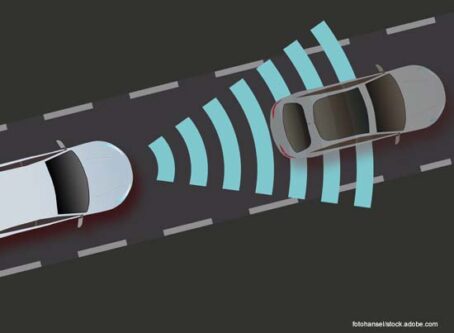U.S. House strikes down electric vehicle charging ‘Buy America’ waiver
The House of Representatives voted to strike down President Biden’s “Buy America” waiver for electric vehicle chargers, two months after the Senate passed the resolution.
On Thursday, Jan. 11, the House passed S.J. Res. 38 with a 209-198 vote. The resolution invalidates a Federal Highway Administration rule that issues a temporary waiver for Buy America requirements related to electric vehicle chargers.
The effort is largely a partisan one led by Republicans, with supporting votes from two Democrats: Reps. Donald Davis (N.C.) and Jared Golden (Maine). Two Republicans rejected the resolution: Reps. Brian Fitzpatrick (Pa.) and Tom McClintock (Calif.).
“Biden’s waiver of the Buy America requirements empower our foreign adversaries like Communist China by pouring hard-earned American taxpayer dollars into foreign markets,” Rep. Elise Stefanik, R-N.Y., said in a statement. “Joe Biden and his America Last agenda would sooner invest taxpayer money into Communist Chinese EV chargers than American-made products. The Buy America provision is meant to support American businesses and bolster U.S. manufacturers, neither of which this pro-Communist China Administration is interested in.”
In November, the Senate passed the resolution with a 50-48 vote. Three Democrat senators voted for the resolution: Sherrod Brown (Ohio), Joe Manchin (W.V.) and John Tester (Mont.). Kyrsten Sinema (I-Ariz.) also voted for the resolution. Sen. Rand Paul (R-Ky.) was the only Republican to reject the measure.
Although Congress has approved rejecting the Buy America waiver, the success is likely to be short-lived.
On the same day the Senate approved the resolution, the White House signaled Biden will veto the measure if it reaches his desk. Ironically, the White House claimed that eliminating the waiver will benefit foreign competitors like China, the same argument made by some opposing the waiver.
“If enacted, S.J. Res. 38 would weaken Buy America requirements by reverting to FHWA’s general waiver for manufactured products, allowing federal dollars – including $7.5 billion from the bipartisan infrastructure law – to be spent on chargers made in competitor nations like the People’s Republic of China,” the White House said in a statement. “Additionally, if enacted, S.J. Res. 38 would undermine the hundreds of millions of dollars that the private sector has already invested in domestic EV charging manufacturing, and chill further domestic investment in this critical market.”
Also on Thursday, Jan. 11, the U.S. Department of Transportation announced $623 million in grants for building electric vehicle charging stations. The federal funding is part of the Biden administration’s effort to add at least 500,000 publicly available chargers by 2030. The Infrastructure Investment and Jobs Act included a $2.5 billion Charging and Fueling Infrastructure Discretionary Grant Program, which funds 47 electric vehicle charging and alternative-fueling infrastructure projects in 22 states and Puerto Rico, including construction of approximately 7,500 electric vehicle charging ports.
Slow growth within electric vehicle industry
Although the Buy America waiver for electric vehicle chargers is expected to stay intact and billions of federal dollars are being poured into the charging infrastructure, some recent numbers suggest some skepticism when it comes to electric vehicle adoption.
A recent report by Cox Automotive reveals a slowdown in electric vehicle sales in the fourth quarter of 2023. According to the report, fourth-quarter sales increased by 40% year over year. However, comparatively, sales increased by 49% in the third quarter of 2023 and were up 52% in the fourth quarter of 2022.
“Still, in the automobile business, nothing happens quickly,” the report states. “EV growth will continue to slow, and in the year ahead, we may even report the first quarter-over-quarter sales decline in more than three years.”
In December, the Wall Street Journal reported that electric vehicle charging companies were seeing their share prices plummet. ChargePoint Holdings shares dropped by 74% in 2023, while Blink Charging shares decreased by 67% and EVgo shares fell by 21%.
Paradoxically, some concerns regarding electric vehicle adoption include the lack of a charging infrastructure. Consumers are hesitant to buy an electric vehicle if their region lacks a sufficient number of charging stations. Conversely, investors are hesitant to put money into charging stations with slowing electric vehicle demand.
Another concern is price. According to the Cox Automotive report, the average price for a new electric vehicle in December was $50,789. Comparatively, the cost of a new gasoline-powered vehicle was $47,936.
The price difference for Class 8 trucks is even more staggering. According to the American Transportation Research Institute, a new battery-electric truck costs more than $425,000, more than twice the price of a diesel truck.
Truck emission controversy
Those concerns are part of arguments against the Federal Highway Administration’s proposed rule establishing stricter truck emission standards. Expected to be finalized in March, the final rule has faced opposition from lawmakers on both sides of the aisle.
Last July, 30 members of Congress issued a letter to the U.S. Environmental Protection Agency expressing concerns about FHWA’s proposed emission standards that were published that April.
“Complex distribution system upgrades will be required to support EPA’s proposed rule, which will require a whole-of-government approach,” the letter states. “EPA should consider real-world availability and the speed that we can build the required (zero-emission vehicle) infrastructure.”
Shortly after the rule was published, the Owner-Operator Independent Drivers Association issued a statement opposing the proposal.
“Today’s announcement is a blatant attempt to force consumers into purchasing electric vehicles while a national charging infrastructure network remains absent for heavy-duty commercial trucks,” OOIDA President Todd Spencer said. “Professional drivers are skeptical of (electric vehicle) costs, mileage range, battery weight and safety, charging time and availability. It’s baffling that the EPA is pushing forward with more impractical emissions timelines without first addressing these overwhelming concerns with electric (commercial motor vehicles). The pursuit of this radical environmental agenda in conjunction with an anticipated speed limiter mandate will regulate the safest and most experienced truckers off the road.” LL









